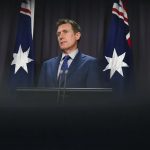How ‘non-memories’ can hinder PTSD recovery

Painful “non-memories” are proving a hidden problem for people recovering from Post-Traumatic Stress Disorder, according to South Australian researchers.
New research from Flinders University in Adelaide unlocks the complexity of PTSD and points to the potential of imagined thoughts about a trauma to compound troubles for patients, and hamper effective treatment programs.
Tackling the problem could be an important step in improving outcomes for PTSD sufferers according to the researchers.
“The complexity of thoughts affecting people suffering from Post-Traumatic Stress Disorder may be compounded by non-memories that potentially strengthen people’s beliefs that a feared outcome is likely to occur and contribute to a sense that ‘worse is to come’,” said research lead author Dr Jacinta Oulton.
“As a result, the symptoms of PTSD may intensify and be less likely to subside over time.”
Participants in the study who had experienced a traumatic life event described their spontaneously occurring traumatic thoughts – memories and also detailed thoughts or images about the trauma that did not occur, called non-memories.
These non-memories included imagined future events related to the trauma and exaggerated versions of the trauma itself.
Participants rated their involuntary memories and non-memories associated with a trauma as comparably vivid and distressing, meaning that they were largely indistinguishable from each other in terms of how they were experienced.
Current theories of PTSD fail to account for the role of elaborative non-memories in PTSD, but this new research suggests the need to address non-memories to improve existing treatments.
“We hope that our results will encourage further research into the relationship between PTSD symptoms and non-memories among clinical populations, and using experimental paradigms,” Dr Oulton said.
“A broader understanding of what drives the relationship between PTSD and non-memories may help to develop more effective PTSD treatments.”
The research findings – PTSD and the role of Spontaneous Elaborative “non-memories”, by Dr Jacinta Oulton, with Flinders University’s Dr Melanie Takarangi and Professor Reg Nixon, with Deryn Strange of John Jay College of Criminal Justice, New York – has been published in the journal Psychology of Consciousness: Theory, Research, and Practice.
Andrew Spence is a journalist, editor, leader and manager with more than 13 years experience in the South Australian media industry.












